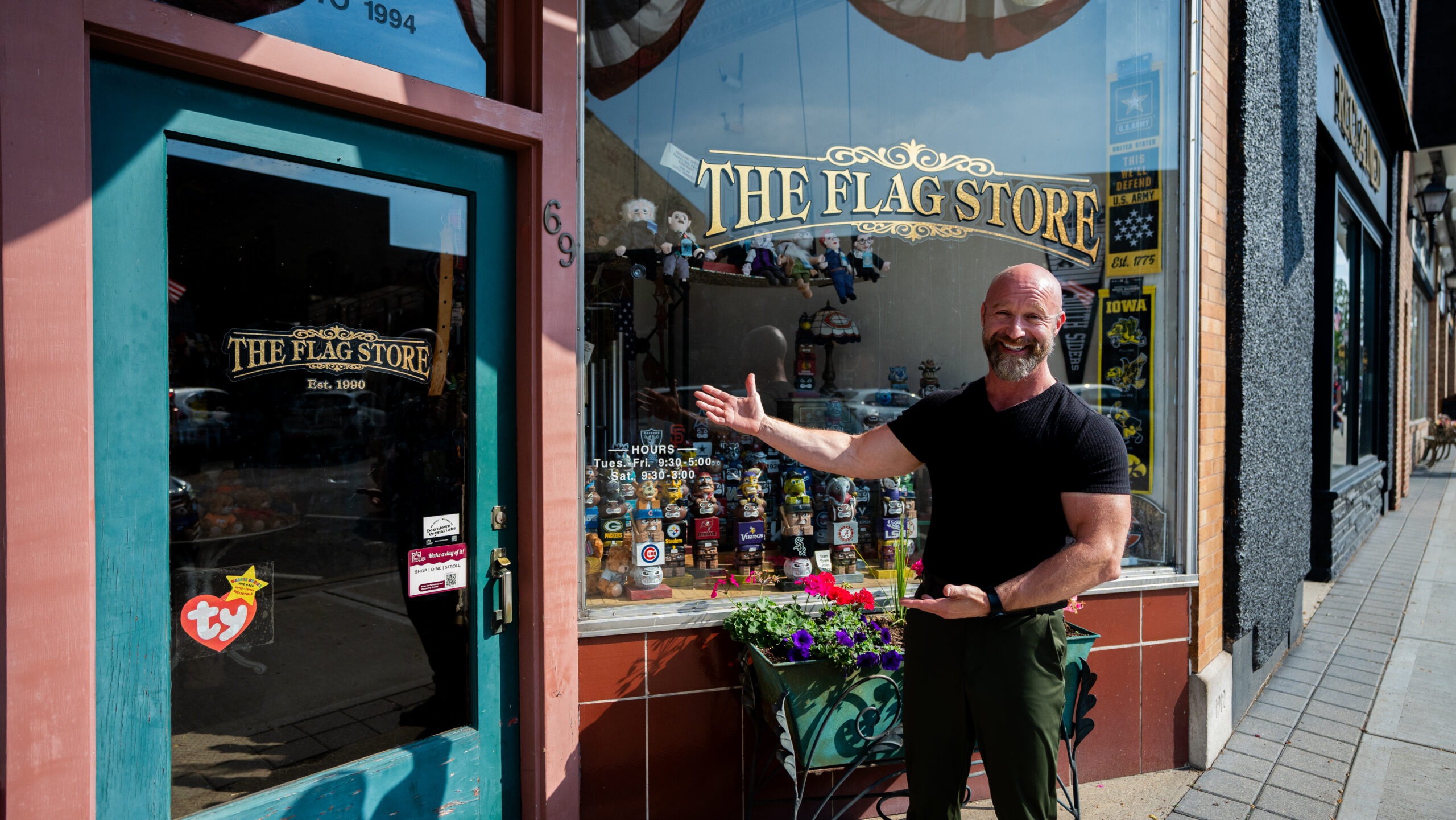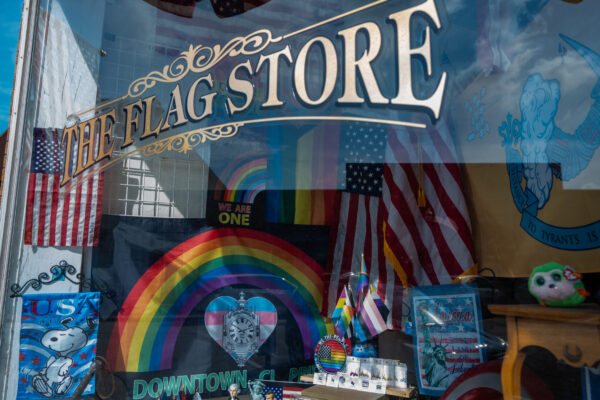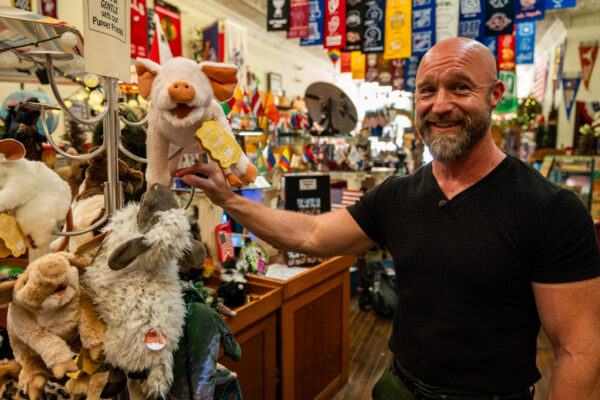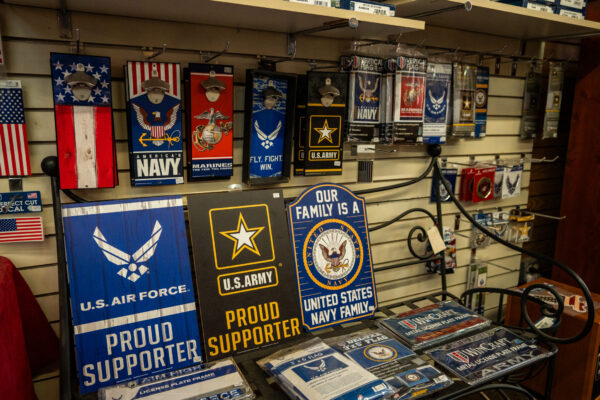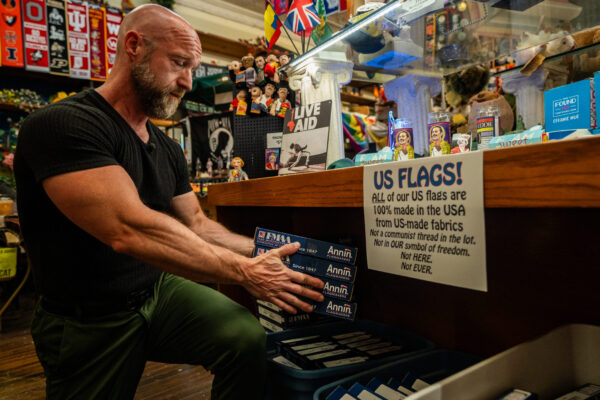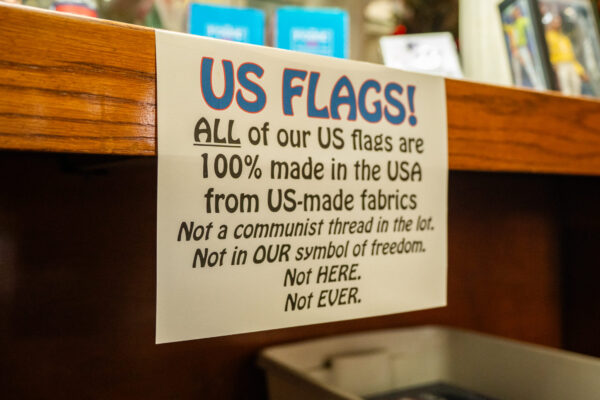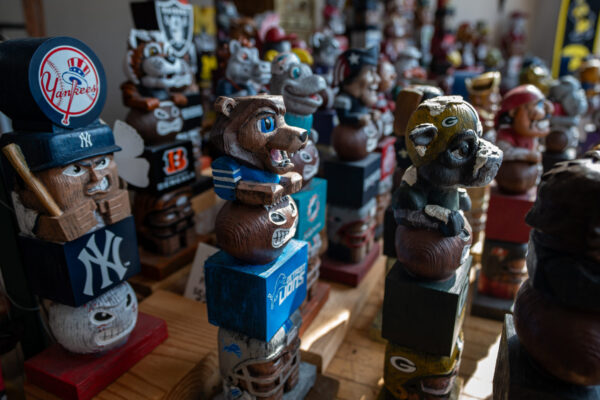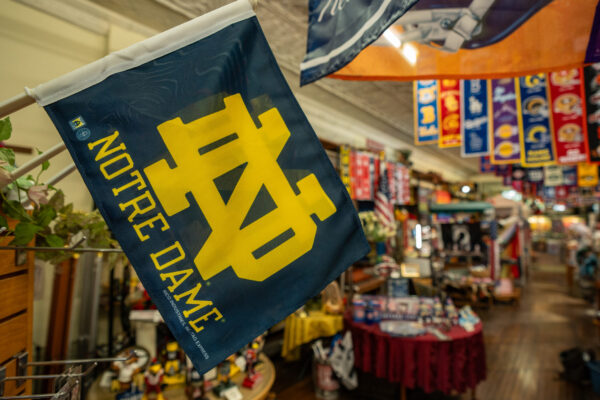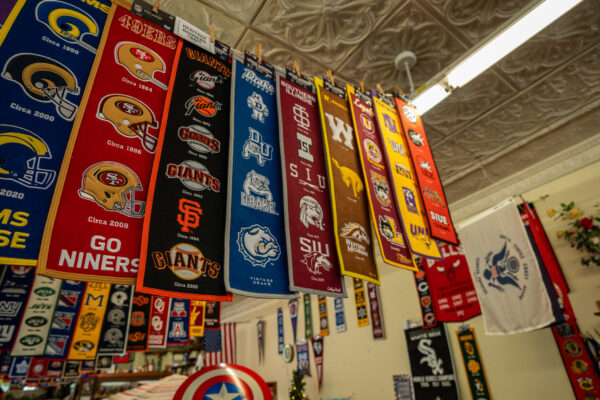The increased costs associated with tariffs impact all of us, affecting millions of people. Retailers of all kinds across Illinois import many of the goods they sell. Tariffs have created more uncertainty for retailers than many have ever experienced. The Illinois Retail Merchants Association has found that while retailers are trying to hold-off on price increases, it’s impossible to absorb the extra expenses for numerous business owners who function on very small margins – which forces consumers to pay more.
Retailers like John McCall, owner of The Flag Store in Crystal Lake, enrich our economy and strengthen our communities, even during the uncertainty of increased tariff expenses. To better understand how The Flag Store is dealing with the escalation of existing tariffs, we sat down for a conversation with John.
Want a national flag of Denmark? How about a banner to support the Chicago Cubs or White Sox? John McCall has it all and then some at the Flag Store in the far northwest Chicago suburb of Crystal Lake.
This unique brick-and-mortar is all about flags, flagpoles, flag accessories, and sports memorabilia banners and bobbleheads. The store was founded in 1990 by John’s parents, Edna and Doug, and sits in a building that is more than a century old in this charming downtown.
“I’m here to make happy people,” said John. “I show up and make happy people every day. It’s a good life for me.”
A good deal of the merchandise sold at The Flag Store is made in the United States, but a sizable portion of inventory is imported, much of it from China. And so, escalating tariffs are now a very real challenge for John. The tariff rates are driving up his costs, which John says he is absorbing in some instances, but that he is more often passing along to his customers as he explained during a conversation at his store about tariffs.
IRMA: While a lot of the flags you see are made in the United States, you also have a lot of items that are not, correct?
JOHN: Yes, all the flags we carry are made in the U.S. and are from American made fabrics. But not everything in the store is from this country. A lot of things are imported. A lot of items, especially things like licensed sports items, come from wherever the manufacturers are having it made. In a lot of cases, that’s China.
IRMA: So, give us an example of items that are not made in the US.
JOHN: Among the things that are imported would be our team totem poles that feature team mascots, team bobblehead dolls, teddy bears and a lot of my other gift items are all made abroad. I also carry things like solar lights for flag poles, and there is not a solar light industry domestically, so those come from China as well. Even the smaller things like flag hardware, typically come from China.
IRMA: So, how are you dealing with rising tariffs costs?
JOHN: The tariffs are impacting me by raising the costs to me, which I have to pass along to my customer. I have to be able to make a profit to stay in business and the margins being what they are, we have to raise our prices, based on what we’re paying. Unpredictable rates have made it very difficult to plan for seasons, especially with the tariffs being on again, off again, changing from this to that. So, I’m always trying to find the right timing to buy something where you’re not going to pay two or three times as much. Trying to figure out the timing of all this is another part time job when running a business like this. Unpredictable tariff costs make it difficult to plan ahead.
IRMA: Are there instances where you won’t raise prices despite an increase in costs?
JOHN: Depends on the item. If it’s a very small item and I already have some of it, and just getting a few more, then I might just eat it rather than raise the prices. But if it’s a whole category of merchandise and ends up costing much more, I have to pass it along and raise its price.
IRMA: As a business owner, you’ve obviously been successful because you’ve been around for a while. So, how do you view these tariffs?
JOHN: The uncertainty now is very difficult. We’d love to have everything made in the United States. The end goal is to drive production back to the States. That would be wonderful. But the transition will be painful. Prices will go up. It doesn’t make sense for businesses to produce here. So, if we do have production back here, it will be another eight to ten years before we would actually see that happening. By then, the prices will be high. How will our customers respond if instead of being able to pay $46.95 for of wool banner they might have to pay $80? My business model is based on the pricing that I have now. It remains to be seen how the consumer will respond to those higher prices.
IRMA: Have you had to adjust a lot of prices already?
JOHN: I have had to adjust a number of prices based on tariffs like the wool banners I mentioned. The costs for wool heritage banners for my sports teams went up. So, I chose to split the difference and just passed along a $2 increase to my customers for the time being.
IRMA: What are you telling your customers? Are they coming in concerned? Especially it they’re buying American flags, they want to know if it’s made in China.
JOHN: When it comes to American flags, I’m always happy to answer that question. I tell them those are not affected by tariffs one little bit. There is not a Chinese thread and not one Chinese grommet. Nothing. Every American flag is 100% American made as it always has been in my store. But I do tell them that some other items have gone up in price.
IRMA: Are some people staying away from some items they would ordinarily be buying here?
JOHN: I haven’t really seen a lot of impact from customers backing away from making purchases. But again, there’s only really a few items that I’ve increased price on noticeably. I think they’re kind of used to paying a little extra every year. I don’t think I’ve really lost sales that I know of from the price increases yet.
IRMA: Have you given any thought to how your small shop in Crystal Lake is tangled up this global dispute over tariffs?
JOHN: Every store owner in this country will be affected identically, whatever their politics may be. As an American, one thing I will say is, as a flag store, I’ve ended up selling a lot more flags. I will say it’s been quite a while since I’ve sold the flag from China or Russia.
IRMA: What would you like to say to politicians who are controlling tariff costs?
JOHN: What I’d like to say to the politicians of this country is whatever decision we’re going to make, whether it’s international trade and tariffs, let’s get it done. Those of us who are living here and trying to do business in this country would like to know what we can count on, and how we can plan ahead to continue in business successfully.
